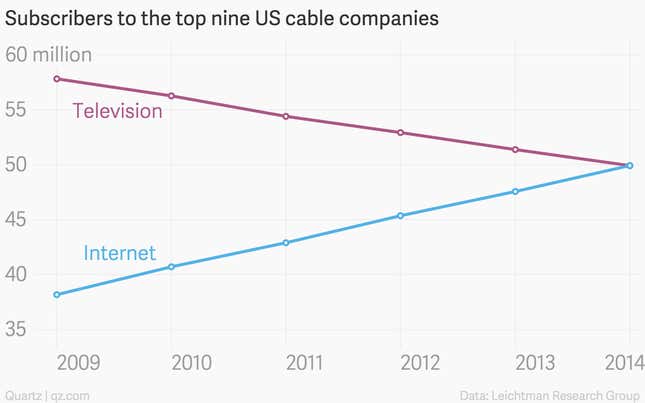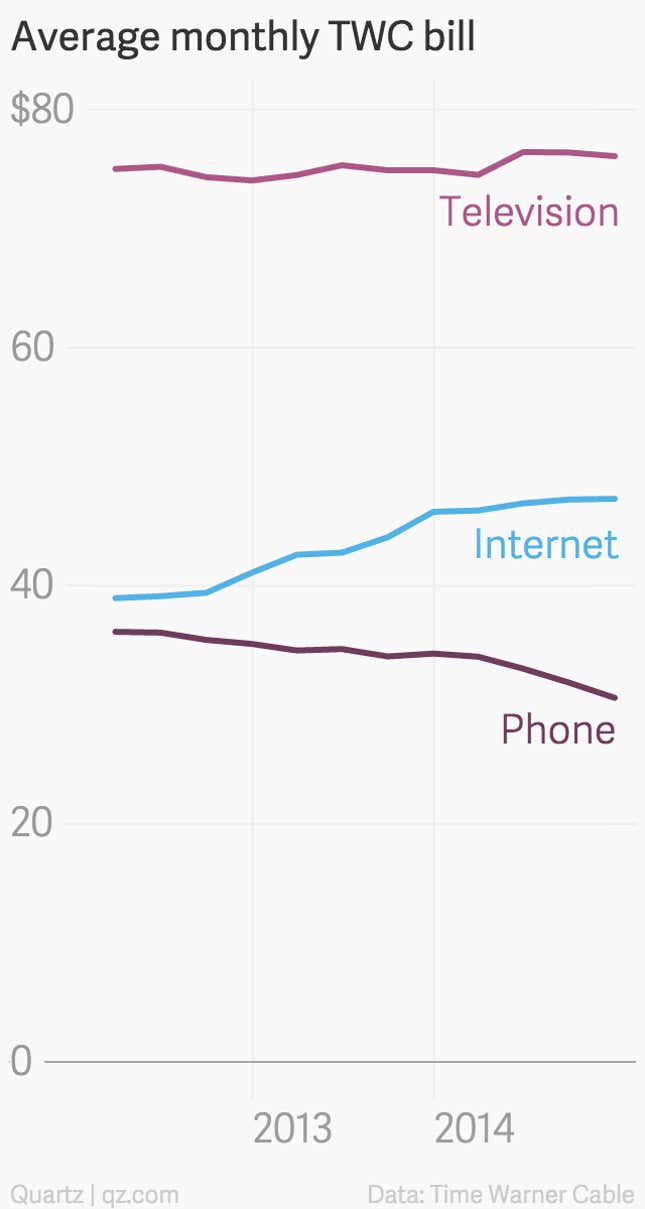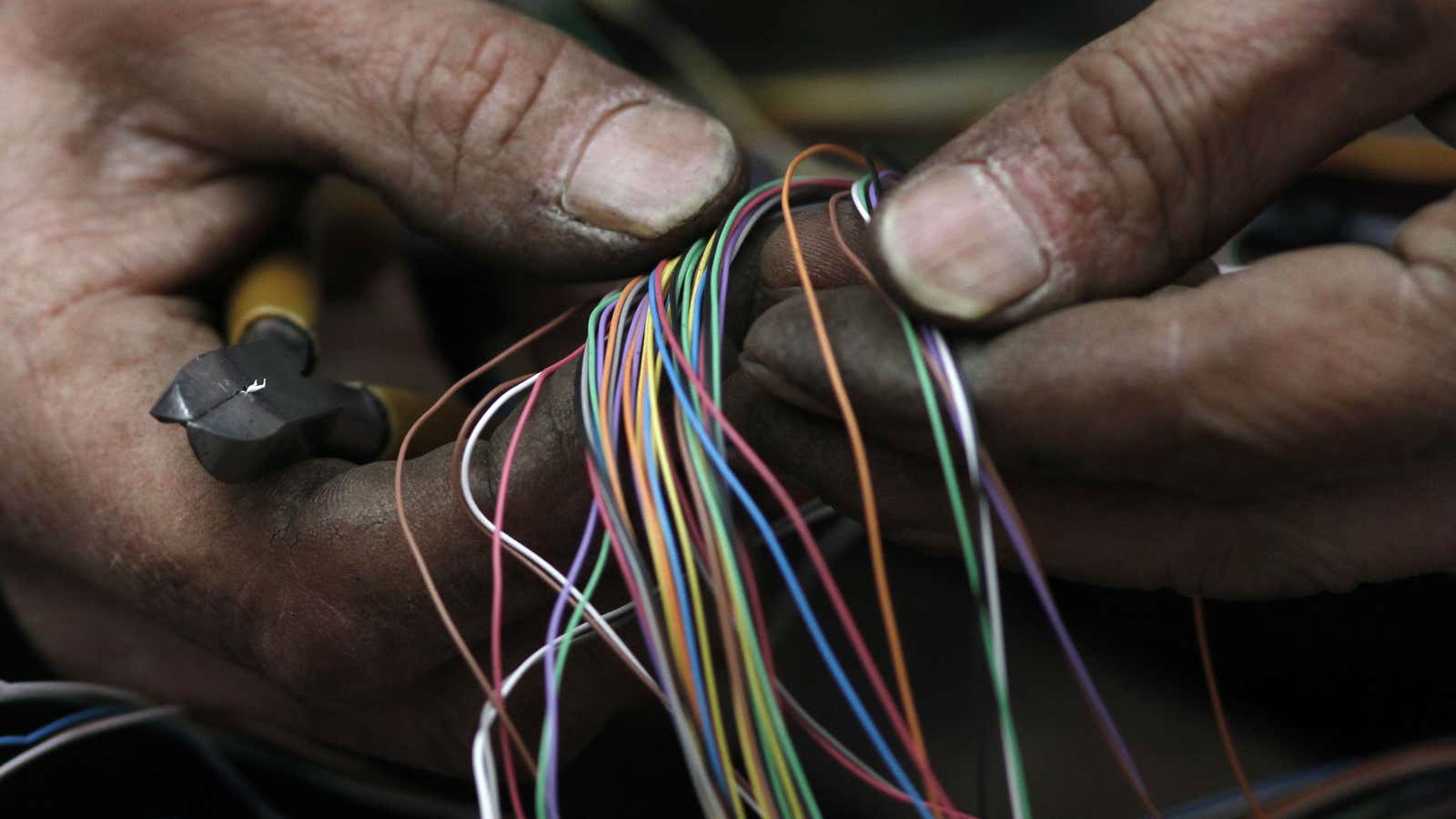American cable companies are really internet service providers with a declining side business in television.
The cable industry is slowly losing TV subscribers, but has made up for it with new customers for internet service. Last year, for the first time, more Americans paid for cable internet than cable TV:

Cable companies still generate more revenue from television than internet service, but those lines on the balance sheet are converging, too. In any event, broadband internet is a higher-margin business than cable TV, which requires hefty payments for programming licenses. Internet service providers are also less susceptible to competition.

All of which helps explain why the price of cable TV is holding steady in the US, while internet bills rise. Take a look at Time Warner Cable, the nation’s second-largest cable company (behind Comcast, which is attempting to acquire it). For its residential customers, the average monthly cost of TV service is $76.08, just a dollar more than it was two years ago. But internet service prices are up 21% over the same period, to an average of $47.30 a month.
Time Warner Cable is hardly alone in this trend; it just happens to break out its revenue per customer to a more granular level than some of its competitors. The company reported fourth-quarter earnings today. It lost another 38,000 TV subscribers but added 168,000 internet customers. Phone service subscriptions also jumped by 295,000, largely the result of bundling with other plans.
Internet service is, of course, a prerequisite even for cord cutters who eschew traditional TV for alternatives such as Netflix (or slimmed-down packages of live television such as the newly launched Sling TV).
Which is why, absent viable competition, Americans should expect the cost of internet to keep rising for some time.
